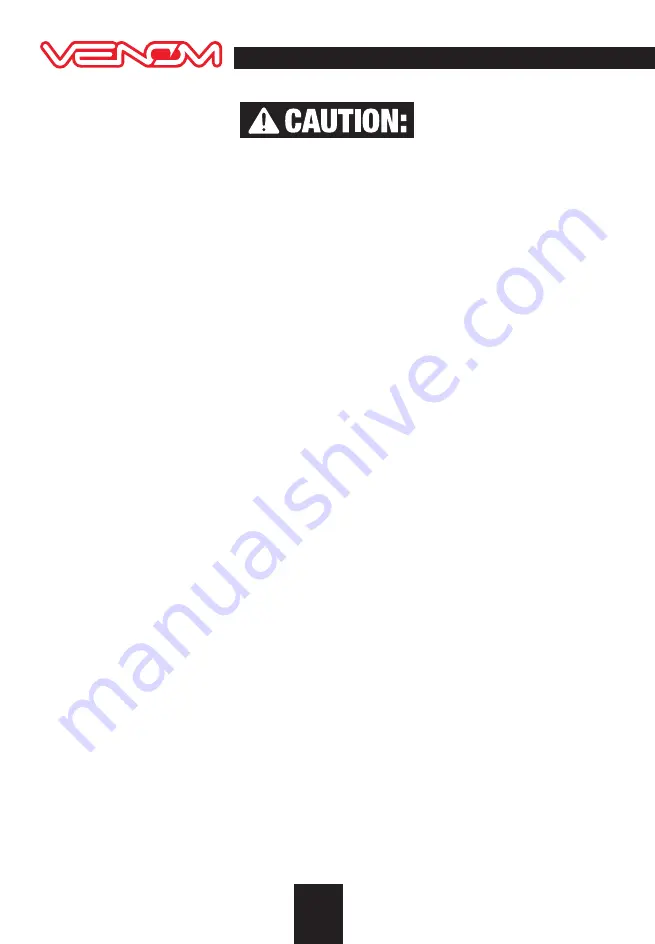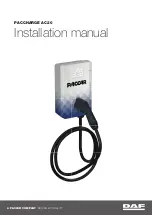
venompower.com
0609
1
venompower.com
CHARGING BATTERIES CAN BE HAZARDOUS
Before attempting to charge or discharge a battery, first read the safety warnings and instructions
provided with your battery. Contact the battery manufacturer if these instructions were not provided or
are unclear.
Before charging or discharging any battery, carefully inspect the pack to ensure no physical damage,
swelling or “ballooning” is evident. Such signs indicate that a dangerous problem exists with the battery
that could lead to catastrophic failure including fire and explosion.
Under no circumstances should you charge or discharge a battery that has swollen “ballooned” or been
damaged in any way. Refer to the safety warnings provided with your battery for further instruction.
Batteries on charge or discharge MUST remain under constant observation so that you may react quickly
should any problems arise.
Always keep a class D chemical fire extinguisher nearby, in case of fire when charging or discharging
battery packs.
Be sure to understand the specifications of the battery pack to be charged or discharged. If the charger
program is set up incorrectly the battery pack can be severely damaged, catch fire, and cause personal
injury. Refer to the battery label for the specifications of your battery pack or contact the manufacturer.
Battery packs when improperly charged or discharged, can sustain permanent damage, catch fire,
explode, and cause personal injury.
Immediately discontinue the charging or discharging of a LiPo battery if it begins to swell or “balloon”.
This charger and the battery to be charged or discharged should be set upon a heat resistant,
non-flammable and non-conductive surface away from any flammable materials.
Never charge a battery pack that feels too hot to the touch. Always allow a battery to cool to ambient
temperature before charging.
Always use a LiPo safety sack or other fireproof container when charging or discharging battery packs.
Charge each battery pack individually. Never charge battery packs in series or parallel. Charging packs in
series or parallel may result in improper charger cell recognition, improper charging rate, and over
charging that may lead to fire or explosion.
Never leave the charger unsupervised when it is connected to its power supply. If any malfunction is
observed immediately terminate the process and refer to the operation instructions.
Keep the charger away from dust, water, heat, direct sunlight and vibration.
Do not disassemble, modify, or attempt any form of repair of this charger.
Summary of Contents for ProPowerHD Commercial Series
Page 1: ...OPERATING MANUAL LiPo LiHV CHARGER PROPOWERHD...
Page 2: ......
Page 14: ...PROPOWERHD...
Page 15: ......


































